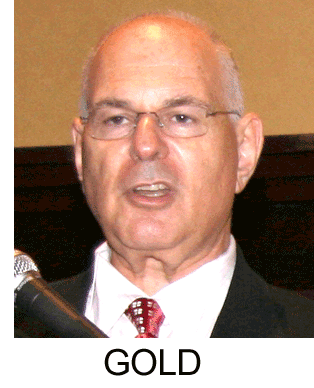 Faculty across the United States are being slowly stripped of their autonomy, but UUP and its national affiliate are fighting back.
Faculty across the United States are being slowly stripped of their autonomy, but UUP and its national affiliate are fighting back.
AFT Director of Higher Education Larry Gold told dozens of UUP members attending the Academic Delegates Meeting at the Fall DA that faculty are under the gun from the conservative right. Attacks on autonomy, academic freedom, accountability and assessment are the latest assaults in the radical right’s quest to control America’s classrooms.
“We’ve had attacks on individuals or classes of individuals, but this is different,†Gold said. “This is a way more sophisticated and systemic attack on all the premises that underlie public policy and educational practice.â€
The AFT can claim victory on at least one front, Gold said. The national federation has been able to beat back dozens of attempts by ultraconservative David Horowitz to get his so-called Academic Bill of Rights (ABoR) legislation passed. ABoR legislation calling for restrictions on educators’ ability to discuss controversial or provocative ideas in their classrooms has been introduced in 28 states to date, but — thanks in large part to the no-holds-barred approach of the AFT — not one bill has passed a state legislature.
“What has, so far, been wildly successful is Free Exchange on Campus, a broad coalition movement led by the AFT,†Gold said. “Our success has been built on local coalitions of student, faculty and civil rights groups advocating for the right to hear and express ideas unencumbered by political or ideological interference.â€
Gold said Free Exchange doesn’t miss a trick, noting that the coalition is constantly responding to the “incendiary books and press releases†by challenging the credibility of those opposed to intellectual freedom. For more details and to lend a voice to the effort, go to freeexchangeoncampus.org.
The AFT will not rest on its laurels, Gold said.
The national federation is regularly developing initiatives to educate lawmakers and the public on the importance of faculty autonomy, academic freedom, and accountability and assessment. The latest is a new statement on academic freedom coming out this month that “simply conveys what our higher education leaders and members think about autonomy concerns such as curriculum, methods of instruction, classroom exchange and bringing up nontraditional subject matter,†Gold said.
In addition, the AFT Higher Education Program and Policy Council, chaired by UUP President William Scheuerman, is preparing two reports that clearly define assessment and accountability, and explain how higher education faculty operate under a very explicit set of standards and procedures.
Faculty at public higher education institutions aren’t the only ones feeling the pinch. At Rensselaer Polytechnic Institute (RPI) in Troy, N.Y., the Faculty Senate was suspended following an election of senate leadership critical of the campus president.
“The RPI Board of Trustees has taken an extraordinary step in interfering in the composition and the running of the RPI Faculty Senate after the faculty had
clearly spoken,†noted UUP Vice President for Academics Frederick Floss, who moderated the discussion.
Claiming an “attack on faculty governance at RPI is an attack on governance at all institutions of higher education,†Floss called on academics to support a resolution urging UUP to strongly oppose the move to disband the RPI senate and to demand the immediate reinstatement of the duly elected Faculty Senate with all its rights and powers.
The full DA later adopted the resolution without dissent.
— Karen L. Mattison

